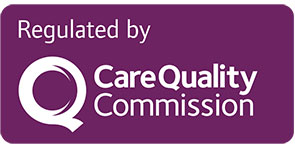Taking time for yourself
When you are the last item on your priority list, you probably aren’t seeing the benefits of self-care. But pushing yourself up on your ‘to-do list’ can mean less stress, greater health, and a better overall quality of life.
Taking time to relax and de-stress can improve your mood, brain function, and memory. Relaxation allows your mind and body to repair themselves – Leading to you making better decisions! It also helps lower the risk of depression, anxiety, hypertension, or heart attacks, keeps away excess pounds, and boosts your immunity.
Stress can suppress positive traits, which can have a poor impact on your interpersonal relationships and coping mechanisms. When you step away from the stress, you allow your favoured traits to shine!
Why is self-care important?
If you’re new to the world of self-care, you may be wondering what the big deal is… Let’s start by understanding why self-care is so important and the harm it can do to our mental and physical well-being if you ignore important self-care habits.
Have you ever heard of the term ‘flight or fight response’? This is when our body goes into survival mode if we feel very overwhelmed and panicked and starts to produce high levels of a natural stress hormone called ‘cortisol’.
Following the release of cortisol, adrenaline courses through the body, elevating our heart rate and blood pressure and boosting our energy supply. If this stress level continues to heighten, even more cortisol is released to keep up with the perceived (or real) threat.
Cortisol and other stress hormones are designed to help enhance our immune system and aid in balancing the nervous system; however, prolonged lapses of fight or flight mode (also known as freeze mode) can lead to detrimental health issues and disruptions to our regulation system.
By practising self-care, you can avoid harmful triggers that might activate intense emotions and allow the brain to release the “feel-good” chemicals we crave!
Brain chemicals that make you happy
By maintaining a successful self-care routine, we can ensure our brain and body are jam-packed with natural happiness chemicals that will make our day much better.
Here’s some of the key brain chemistry you should know:
1. Dopamine
Dopamine is a neurotransmitter and serves as the “reward centre” of our brain. Our brains are wired to seek experiences that bring pleasure. When we do something fun and pleasurable, dopamine is released, and we feel good.
2. Oxytocin
Oxytocin is a hormone released by the hypothalamus into our bloodstream by the pituitary gland. It is often considered the “love hormone” associated with childbirth, nursing, cuddling, sexual experiences, and when we fall in love. Low levels of oxytocin are linked to postpartum depression and regular depression.
You can boost your oxytocin levels through exercise, physical touch, music, and hanging out with friends.
3. Endorphins
Our body creates natural endorphins to help relieve stress and pain, primarily created in the hypothalamus and pituitary glands.
Here are some ways to boost your endorphins: Regular exercise, giving to others, Yoga and meditation, eating spicy foods and dark chocolate, and laughing out loud!
4. Serotonin
Serotonin is a natural chemical primarily produced in our digestive system and is made from an essential amino acid called tryptophan. If you want to improve your tryptophan levels, you can try adding tryptophan-rich foods to your diet, like nuts, red meat, salmon, turkey and cheese. Not to mention, exercising also triggers the release of tryptophan.
Serotonin is considered a natural mood stabilizer and can help with sleeping, eating, reducing depression, regulating anxiety, healing wounds, enhancing bone health, and helping ease nausea.
Self-care ideas
Remember, self-care is not selfish. Taking time for yourself and managing your stress can rejuvenate your soul! If you slow down and become present in the moment, you can begin to enjoy the simple things in life and become more positive…
Here are some habits and activities that you can add to your self-care plan:
- Stay hydrated
- Have a long bath or shower
- Journal
- Listen to your favourite music
- Go for a walk outside
- Call or message your loved ones
- Try a new hobby – like painting
- Eat a nutritious diet
- Take a break from social media and your phone









